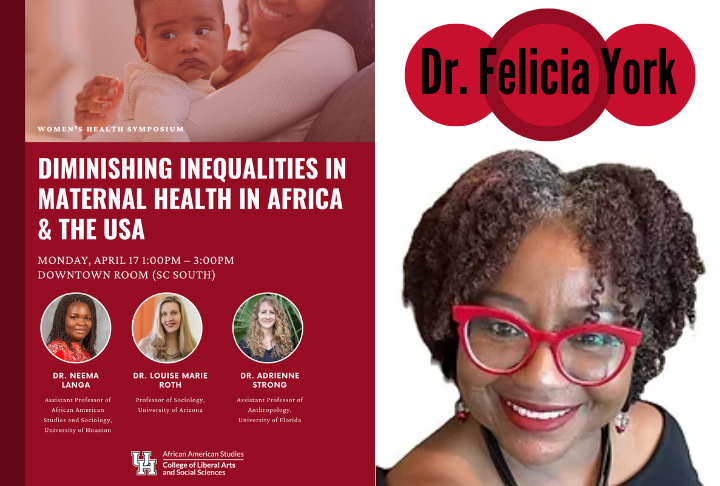
Health communication postdoctoral fellow Dr. Felicia York will be participating in the Women’s Health Symposium discussing the diminishing inequalities in maternal health in Africa and the United States.
The symposium will be held in the Downtown room at Student Center South on Monday, April 17th from 1 p.m. to 3 p.m. with three panelists, hosted by the African American Studies department.
York will highlight her research on Black maternal mortality and morbitity. Presented with assistant professor of African American studies and sociology Dr. Neema Langa, York will focus on the disproportion in the healthcare of African American women as a visual addition centering maternal health disparities.
What made York get involved in her research was a personal connection to the topic. The agenda of what York is working on involves highlighting disparities in culture and health as well as the role those disparities play in certain demographics.
“My interest stemmed in this because it's basically in my DNA,” York said. “My interest sparked in why (this affects) the communities I’m a part of. Why do we hear these same messages, but we’re still engaging in these unhealthy behaviors? The healthcare system may be a reason for that, because of our mistrust.”
In York’s family history, many members on her paternal side of the family, including her father himself, passed away in their 40s or 70s of massive heart attacks, she said.
“Since I study African Americans, it was a natural progression to look at such a relevant topic, especially for Texas because we are leading those health disparities,” York said.
An inspiration of York’s work was seeing Serena Williams experience a blood clot and having medical experts ignore and dismiss her. She said if doctors were not willing to take a wealthy, well-known, strong Black woman seriously, she did not know how other women would have any chance at all.
After interviewing 24 new and pregnant mothers, York introduced a technique called ‘PhotoVoice’, by Wang and Burris, where she asked her participants to take pictures of barriers and successes of maternal health and items they found in common with the research.
“People are fascinated with PhotoVoice. I just think it's a great platform to get people to talk about their issues in a non-anxiety-inducing way," York said.
The symposium will act as a way to share the lived experiences and stories past the dissertation research phase, especially in the material York will get to showcase. A goal of York’s after presenting her work is to move on to an assistant professor position, researching and teaching what she has learned and worked on over the years.
York aims to have her participants' stories told and retold as she works with them on her post-doc topic of pelvic floor disorders and continues to work with non-profit organizations Push Birthing Partners and qualitative consulting.
“This is a form of cultural storytelling,” York said. “I feel like it is my duty to not let these stories stay in my computer.”